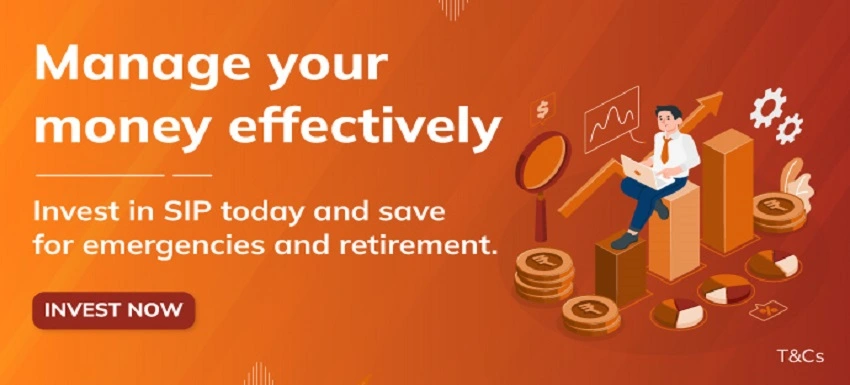THE
ORANGE
HUB
Index Mutual Funds - Best Index Funds to Invest in 2025

What are Index Mutual Funds?
Index mutual funds are investment vehicles that aim to mirror the movements of market indices like the S&P 500 or Nifty 50. These funds invest in the same securities that make up that index in the same proportion, aiming to match the index’s return.
It means that the value of an index fund will move in sync with the performance of the underlying index. The primary advantage of index funds is their affordability. Their costs are generally lower than actively managed funds, as they do not need constant management. Additionally, by spreading your investments across multiple stocks or equities in the market, they provide diversification which helps reduce risk exposure.
Index mutual funds offer a great option for investing in the stock market without the need for extensive research. They are suitable for newcomers and seasoned investors seeking a simple and hands-off investment approach.
How do Index Funds Work?
Index Mutual Funds implies funds that replicate the performance of a specific market index, such the NSE Nifty 50 or the Nifty Total Market Index. For example, an index fund that tracks Nifty 50 will invest in the same 50 equities in the same proportions as the index. In a similar way, a fund that tracks the Nifty Total Market Index will invest across 750 firms from different market capitalisations and industries. Index Funds are passively managed in contrast to actively managed Mutual Funds, which use stock selection to beat their benchmark.
Advantages of Index Mutual Funds
1. Low Costs
They have very low expense ratios, which are the annual fees the fund charges to manage its assets. These low costs are due to the passive nature of Index Funds, as they do not require a team of analysts to research and select stocks.
2. Diversified Portfolios
Offer instant diversification across multiple market sectors. By holding many stocks, Index Funds minimise the risk associated with any company underperforming.
3. Market-Aligned Returns
With an aim to match the market index performance they track, investors can expect to earn returns closely aligned with the overall market performance without the added risk and uncertainty of active management.
Factors to consider before investing in Index Mutual Funds
Here are the factors to consider before you invest in index mutual funds:
1. Risk Tolerance
Always analyse your risk tolerance before investing in index funds. Index funds are market-related funds and volatility may not be suitable for every investor. It is advised to consider these factors before investing.
2. Financial Objectives
Keep an eye on your financial goals and create a long-term strategy detailing the objectives you hope to accomplish with your investment. You can then decide based on your needs whether to make long-term or short-term investments.
3. Investment Frequency
Another major factor to consider is the investment frequency. It refers to the time period you want to invest. Investing in a short-term fund makes sense if your goal is to save money for a car or a house; on the other hand, investing in a long-term fund, like an equity index, makes sense if your goal is to save money for a long-term objective, like retirement.
When Should you Consider Index Funds?
Index Funds are a suitable investment option for a wide range of investors, including:
Long-Term Investors
Well-suited for long-term investment horizons, as they provide a consistent and low-cost approach to achieving market aligned returns.
Risk-Averse Investors
Offer a lower risk level than actively managed funds, as they are not subject to the same degree of stock-specific risks.
Investors Seeking Diversification
Provide instant diversification across multiple sectors, reducing the impact of any single company's performance on the overall portfolio.
Who Should Invest in Index Mutual Funds?
Index Mutual Funds are particularly suitable for investors who:
Seek a Hands-off Approach
Index Mutual Funds require minimal active involvement from investors, making them ideal for those with limited time or expertise in stock selection.
Prefer Low-Cost Investing
Index Funds offer a cost-effective way to gain exposure to the market.
Value Diversification
Index Mutual Funds provide broad diversification, reducing risk and enhancing overall portfolio stability.
Have a Long-Term Investment Horizon
Index Funds are best suited for long-term investors who can ride out market fluctuations.
Are Index Funds Good Investments?
Index Funds can be great investment tools for beginners or those looking for inexpensive investment options. Their returns align with the market's growth as they follow the market. Since they do not involve active stock selection by fund managers, they incur lower costs and fees than actively managed funds.
Index Funds provide Indian investors with a cost-effective means of funding high-performing businesses. Additionally, they offer diversification because a single investment encompasses several businesses from several industries. However, because Index Funds are meant to mirror, not beat, the market's returns, they might not perform better than the market.
Index Funds can be a wise choice if you are looking for an easy and low-maintenance investing solution with long-term advantages and modest risk. For objectives like retirement or accumulating money over a period of 5 to 10 years or longer, they are perfect.
How to Start Investing in Index Funds with ICICI Bank
Before investing in index funds, ensure you have created your account with ICICI Bank using net banking for the iMobile app on your smartphone. Also, make sure you have your KYC done before proceeding with investing.
Here’s how you can start investing in index mutual funds with ICICI Bank:
Using Net Banking
Log in to your ICICI Bank net banking and go to investment and insurance.
Next, click on ‘buy mutual funds’.
Select the top categories in index funds.
Choose your desired scheme and start investing with the amount you want.
iMobile App
Download the iMobile app, log in using your credentials, and go to investment and insurance.
Click on ‘buy mutual funds’.
Choose from the top categories in index funds.
Pick your best scheme and invest with the required amount.
Best Practices for Investing in Index Mutual Funds
To maximise the benefits of NIFTY 50 Mutual Funds, consider these best practices:
Choose the Right Index
Select an index that aligns with your investment goals and risk tolerance. Consider factors such as market capitalisation, sector exposure and historical performance.
Invest for the Long Term
Index Funds are designed for long-term investment horizons. Avoid frequent trading or market timing attempts, as these can erode returns and increase costs.
Consider Regular Investing
Regular investments, such as through Systematic Investment Plans (SIPs), can help you benefit from pound-cost averaging, where you purchase more units when prices are low and fewer units when prices are high.
Review your Portfolio Regularly
Review your Index Fund holdings periodically to ensure they align with your investment objectives and risk tolerance.
FAQs for Best Index Funds to Invest
What is the Ideal Amount to Invest In Index Mutual Funds?
The 90/10 rule, suggested by Warren Buffett, advises putting 90% of your money into low-cost stock index funds and 10% into short-term government bonds.
Do Index Mutual Funds Pay Dividends?
Yes, index funds pay dividends because they must. These dividends come from the earnings of the investments in the fund. The amount, timing, and tax effects depend on the specific fund and your tax situation. Dividends can be paid in cash or reinvested into the fund.
What's the Ideal Duration for Investing in an Index Fund
Index funds are best for investors planning to invest for 7+ years. Though they may fluctuate in the short term, they tend to stabilise over time. Over at least seven years, you can expect returns of around 10-12%.
Are Index Funds a Smart Choice for New Investors?
Index funds can be a good option for new investors, however they need to keep in mind that these funds are subject to market risks and involve a high risk. But these are said to be a smart way of investing as these offer a diversified portfolio and a healthy exposure to the market with good returns.
Conclusion
Index Mutual Funds offers a simple, cost-effective and diversified approach to investing in the stock market. They are particularly well-suited for long-term investors seeking market-linked returns without active stock selection complexities. While past performance does not guarantee future results, Index Funds have consistently demonstrated their ability to track market performance and provide investors with a sound investment strategy.
Scroll to top



